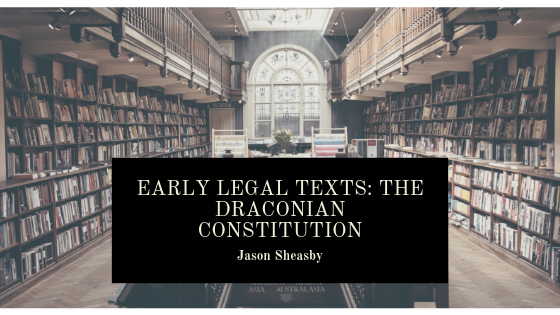Although people often talk about “Draconian” laws when they’re alluding to legal structures they find too constrictive, few truly grasp the history behind their reference. All the way back in 621 BCE or thereabouts, a man named Draco reportedly reformed the laws in Athens. Supposedly, the legal system prior to Draco’s reforms had been very lackadaisical and slanted towards those who were of the aristocratic class.
These nobles knew how to wriggle their way out of a multitude of legal situations, which varied from theft to murder. It fell upon Draco, a legislator, to commit to writing a list of laws that all could follow. This was also new, as not everyone at the time was able to read. But now, a code of law was put into the written language and placed in a central location, allowing citizens to read it if they were literate. Although it may seem like a small start to those who recognize just how complex global laws have become, at the time, Draco’s contribution was earth-shattering.
Not much documentation survives from the days of Draco, but Greek luminaries such as Aristotle and Plutarch were able to pass down what they knew about these early days of Athenian law — and it is certainly impressive. For example, many people today are familiar with the concepts of manslaughter and murder. One type of action results in an accidental death while another pertains to a death that is intended to take place. Incredibly, over two millennia ago, it was Draco who first proposed that these types of death should be treated differently in the eyes of the law. In the seminal constitution he drafted, Draco also came up with the concept of a council that would preside over lawmaking. Council members who didn’t report to duty would be fined.
In the many years that followed, much of Draco’s significant contributions would be lost to history. However, a discovery of one of Aristotle’s works led historians to discover just how integral his ideas were to the foundation of democracy. Although many of his laws would later be deemed too severe, the concepts that he formulated were groundbreaking and lent a great deal to the modern political systems seen today.
